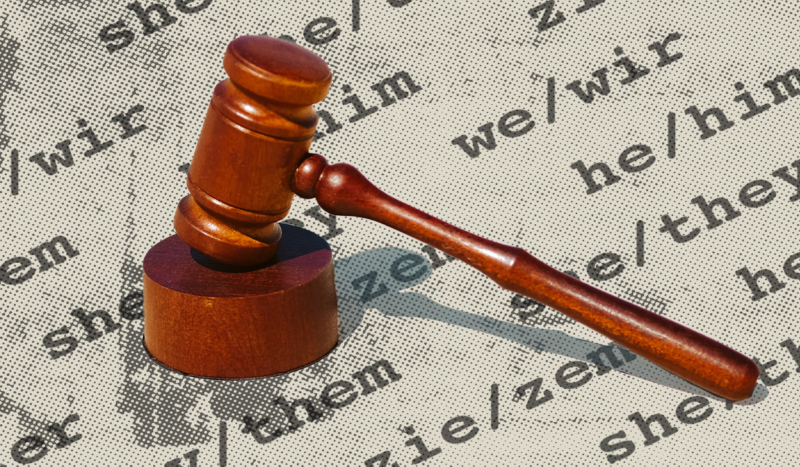
CV NEWS FEED // A recent ruling has made Michigan the only state in the union to mandate that judges address attorneys, plaintiffs, and defendants in court by their “preferred pronouns.”
Reuters reported last week that the Michigan Supreme Court voted 5-2 to approve the change.
The new rule, which will go into effect in 2024, “allows attorneys to include their preferred forms of address or pronouns in the captions of court documents.”
The rule states:
Courts must use the individual’s name, the designated salutation or personal pronouns, or other respectful means that is not inconsistent with the individual’s designated salutation or personal pronouns when addressing, referring to, or identifying the party or attorney, either orally or in writing.
Reuters added:
Under the new rule, attorneys may include Ms., Mr. or Mx., pronounced “mix.” As their preferred form of address in court documents. Mx. Is an honorific that does not indicate gender.
Attorneys may also indicate use of the pronouns he/him/his, she/her/hers, or they/them/theirs in captions.
“The gender identity of a member of the public is a part of their individual identity, regardless of whether others agree or approve,” wrote Justice Elizabeth Welch, a Democrat, who supported the rule.
Welch also said the rule “removes ambiguity and the risk of misgendering an individual.”
Justice Kyra Bolden, also a Democrat, agreed. “Being a judge comes with restrictions and rules, just like any other job, and here, the primary concern is the administration of justice,” wrote Bolden. “By making the courts more inclusive, this increases the courts’ legitimacy and perceived fairness, which are both critical to a well-functioning judicial system.”
Contrarily, Republican Justice Brian Zahra called the issue a “political debate into which our judicial branch of state government should not wade.”
The other dissenting justice, Republican David Viviano, went a step further in his rebuke of the new rule.
“The danger, as seen today, is that judges emboldened to seek improvements rather than neutrally administer the law will wade into socially and politically fraught topics that have little to do with the judicial system,” Viviano wrote in his dissent:
It is sadly consistent with this Court’s recent practice. When the topic is political, as it is here, such actions can only undermine the public’s confidence in courts’ ability to serve as impartial arbiters of the law.
The old saying that “turnabout is fair play” should counsel caution. The membership of this Court changes, and majorities with different perspectives succeed one another. A majority with a different outlook might view the Court’s present action as empowering them to implement rules that would be anathema to the present majority. Indeed, such a majority could seek to implement a rule contrary to that adopted today. What would stop it?
I have my doubts that the majority would be so cavalier about the First Amendment implications of their actions if the shoe was on the other foot.
Unlike in other states, Michigan Supreme Court justices are elected in partisan contests. The court currently has four Democrats and three Republicans.

